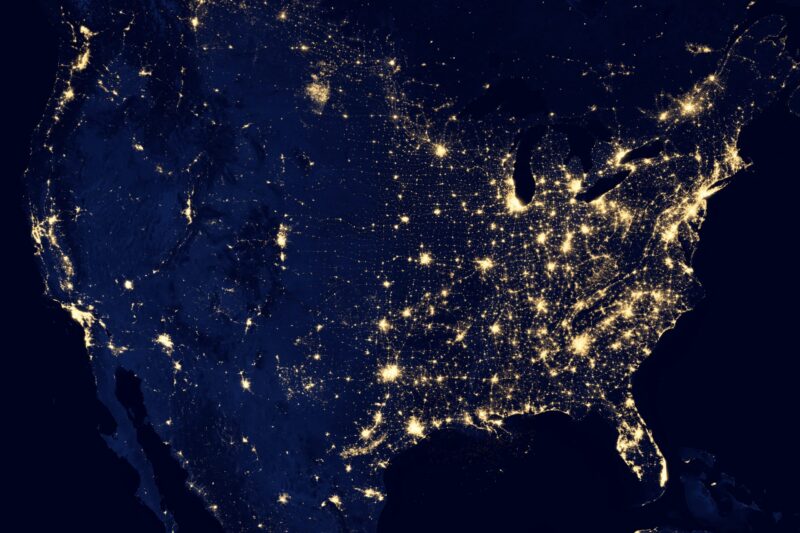
Among growing pressure in the wake of the allegedly state-sponsored SolarWinds cyber attack , federal legislators on both sides of the isle have expressed renewed interest in a federal data breach notification law. Currently, each state has it own data breach notification law governing notice requirements to individuals, state attorneys general, and credit reporting agencies, when personal identifiable information such as names, social security numbers, and credit card information are accessed or acquired as part of data breach. As a result, data breach response involves a host of competing timelines for business to notify various individuals and organizations. This can prove to be inconsistent, complex, costly, and time consuming.
In an attempt to streamline the data breach notification process, Representatives Michael McCaul (R-TX-10), ranking member of the House Foreign Affairs Committee, and Jim Langevin (D-RI-2), chair of the House Armed Services Committee’s cybersecurity subcommittee, are drafting a bill which would create a federal mandatory breach notification. The proposed bill would involve removing sources, methods, and names out of notifications and sending them to the Cybersecurity and Infrastructure Security Agency (“CISA”). Moreover, the proposed bill will incorporate input from the Cyberspace Solarium Commission, a group established by Congress comprised of lawmakers and other officials with the purpose of developing a strategic approach to our nation’s defense against cyberattacks. The Cyber Solarium Commission released its first report in March 2020 calling for several government reforms including, but not limited to: issuing an update to our National Cyber Strategy; establishing a permanent House and Senate Committee on Cybersecurity; and strengthening CISA.
Moreover, the proposed bill is expected to be based on, in large part, previously drafted legislation by Rep. Langevin in 2017 entitled “Personal Data Notification and Protection Act of 2017” (“PDNPA”). See Personal Data Notification and Protection Act of 2017, H.R. H.R.3806, 115 Cong. (2017). The PDNPA was introduced into the house on September 18, 2017, in the wake of the Equifax breach , but died in committee as political energy began to change focus.
The PDNPA required, in relevant part, that “any business entity engaged in or affecting interstate commerce that uses, accesses, transmits, stores, disposes of, or collects sensitive personally identifiable information about more than 10,000 individuals during any 12-month period shall, following the discovery of a security breach of such information, notify…any individual whose sensitive personally identifiable information has been, or is reasonably believed to have been, accessed or acquired.” See id at § 2(a).
Notice under the PDNPA was to be completed by one of the following methods: i) written notification to the last known home mailing address of the individual in the records of the business entity; ii) telephone notification to the individual personally; iii) e-mail notification, if the individual consented, and if consistent with the 01 of the Electronic Signatures in Global and National Commerce Act (15 U.S.C. 7001); or if the number of individuals affected exceeded 5,0000 person, notification could have been provided to media “reasonably calculated to reach such individuals”. See id at § 7.
Similarly, PDNPA required a business entity who suffered a data breach affecting greater than 5,000 persons to notify credit reporting agencies. See id at § 6. PDNPA provided authority to the Federal Trade Commission to enforce penalties; however, it also recognized state attorneys general could, in the interest of the residents of their state, bring civil action against violators imposing fines of $1,000 per day per individual whose personal identifiable information was exposed with a maximum of $1,000,000 per violation, unless the business entity’s conduct was found to be willful or intentional. See id at §§ 8-9.
Finally, PDNPA was to supersede all state laws regarding breach notification by a business entity engaged in interstate commerce who suffers a data breach. See id at § 10. Whereas PDNPA never was enacted, the proposed legislation will likely closely mirror the above-referenced terms.
The Octillo Incident Response team will continue to monitor any developments regarding a national data breach notification law and will update its guidance accordingly. Our attorneys are nationally recognized for our experience working on data breaches, including some of the most notorious cyber incidents in recent history. If your business is in the midst of navigating the complexities surrounding a recent data breach, our team can be reached anytime via our 24/7 data breach hotline at 844-502-9363 or by emailing [email protected].
*Attorney Advertising; prior results do not guarantee similar outcomes.

